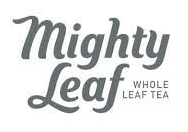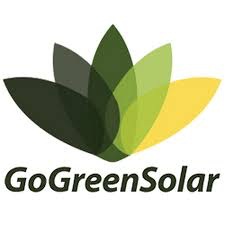
Art | Resources
Mowing grass after spraying
Question from Annette Tweedel
Hi Debra, Our neighbor had Orkin come on Saturday, September 24 to fog, not spray, for mosquitos with Talstar Professional. They have a lot of property and part of their property goes behind our back yard. Now, since we have complained of reactions they don’t fog towards our house now. But it still drifts because we still have reactions. Which means it probably drifted onto our grass.
Now it has rained a couple of times since then.
Now with me having MCS, my husband has MCS as well and so does our daughter, my question is, how soon can we get out and mow the grass and do some weedeatting around the house and yard and do this without having reactoins since they fogged for mosquitos next door? Thank you very much for the help.
Debra’s Answer
Talstar contains bifenthrin, a pyrethroid insecticide that affects the nervous system of insects.
It is virtually insoluble in water, so it has high persistence in soil with a half life between 7 days and 8 months. It lasts longer than any other termiticide currently registered on the market.
Pesticides containing bifenthrin have been withdrawn from use in the European Union.
So, in terms of mowing the lawn, if there is any Talstar drift, it’s going to be there a while. Half life is “the time when the expected value of the number of entities that have decayed is equal to half the original number.” It’s a probability, not an absolute. So minimum time before it will be gone is 14 days, and would probably be completely gone in 16 months.
Organic Dolls stuffed with Recycled PET plastic
Question from AnnieC
There are some dolls out there that are made of all organic materials on the outside and stuffed with Recycled PET plastic. Here’s the product description: “100% Oeko-Tex certified organic doll Organic clothing Stuffed with 100% post-consumer recycled plastic PET bottles.” Does this sound like a pretty safe product?
Debra’s Answer
NO.
Here’s why.
The “100% Oeko-Tex certified organic doll Organic clothing” is fine.
The recycled PET plastic is “green” from the viewpoint of the environmental benefits of resource efficiency and reducing waste. However, PET is not nontoxic. PET is polyethylene terephthalate which leaches and outgasses endocrine disruptors. Recycled or not, it’s still PET.
A child’s body is still in it’s formative stages and their detox systems cannot handle the amount of toxics in our world. So every little bit you can do to reduce their exposure matters.
Safe baby clothing
Question from Melbrecht
As a mom of four I appreciate hand me downs and gifts of clothing. I wish I could buy all organic clothing, but can’t all the time. I have been reading about all the chemicals in clothing and am becoming very confused about which brands are safe. My question thus has two parts. Does soaking new clothes in a cup of vinegar added to the soak cycle help rid harmful chemicals like formaldehyde? Also will chemicals transfer from new clothing to the organic clothing I do have?
Debra’s Answer
Vinegar will not remove a formaldehyde-resin finish. And yes, chemicals from one clothing item can transfer to another.
The good news is that not all new clothing contains formaldehyde. The worst are thos labeled “permanent press,” “easy care” or something that indicates it will not wrinkle. Also, anything made with a polyester cotton blend. This is impossible to remove because it is permanently bonded to the fabric and continues to outgass formaldehyde.
Most new clothing is, however, treated with a finish called “sizing” which helps garments keep their shape. This is cornstarch-based and washes out easily.
ALWAYS wash new clothes before wearing or putting them in a drawer or closet.
Hanes’ Sweatshirts and Pants made with Recycled Plastic Bottles
Question from Reenie
Hi Debra,
Congratulations on your new book. I want to purchase a copy soon as my budget allows!
My question is about clothing made with recycled plastic. As I understand it, there would be BPA bisphenol A and perhaps plasticizer like some type of phthalate in the recycled plastic materials. BPA is an endocrine system disruptor, as I believe are some phthalates.
I don’t want to purchase these, would just prefer cotton sweats that are reasonably priced.
I wrote Dr. Frederick vom Saal, who is one of the source scientists for the BPA research (recall that he is mentioned in Science Daily articles on BPA on the surface of thermal paper cash register receipts. I asked Dr. vom Saal if any studies were being done on the health risks associated with wearing clothing made with recycled plastic bottles. He said he was not aware of any studies. What is your opinion?
By the way, I read a great review of your book in a literary review sort of newspaper that our library gives out. Thanks so much!
Debra’s Answer
I wouldn’t wear recycled plastic clothing myself. Plastic is plastic, recycled or not.
I think the health risks of wearing plastic clothing are the same or worse than drinking water that contains BPA. If this particular plastic contains BPA or phthlates, the skin would absorb them and the chemicals would go immediately into your bloodstream and throughout your body in seconds.
This is an example of where a “green” thing that would help the environment does not help our health.
Organic cotton clothing helps both our health and the environment.
The Cook’s Garden Seed Company
Seeds for organic vegetables and herbs chosen especially for cooks, plus kitchen and harvest supplies.
Afterglow Cosmetics
Mineral cosmetics made by a company that is very choosy about their ingredients. Their cosmetics are are free from talc, GMOs, gluten, carmine, bismuth oxychloride, parabens, artificial colors, cornstarch, mineral oil, nano/micronized particles, and petrochemicals. “Not only do we choose the most natural and the safest ingredients, but we carefully select the source of those ingredients to ensure the purest product of the highest quality. This means triple jet milled, pharmaceutical grade minerals and pigments, as well as certified organic botanicals….minerals infused with the age-defying properties of certified organic antioxidants like organic grape seed extract and organic pomegranate extract that Afterglow’s mineral cosmetics to a whole new level of natural beauty and botanical adornment.” Woman owned and woman formulated. All their cosmetics are 100% natural ingredients (many organic) and come in beautiful shades. Beauty advisors are available to help you choose the perfect colors for you.
 |
Listen to my interview with Afterglow Cosmetics Founder and Chief Executive Officer Kristin Adams. |
Mighty Leaf Tea
 Organically grown teas of exceptional quality and variety. “Mighty Leaf Tea was born for the sole purpose of infusing life into an ancient indulgence by creating tea products that reach new heights of quality and innovation… a shared passion and dream envisioned by a husband-and-wife team..their passion is for creating the most incredible handcrafted tea blends found anywhere, globally sourcing the finest ingredients available.” Teas sold loose and in handcrafted biodegradable tea pouches.
Organically grown teas of exceptional quality and variety. “Mighty Leaf Tea was born for the sole purpose of infusing life into an ancient indulgence by creating tea products that reach new heights of quality and innovation… a shared passion and dream envisioned by a husband-and-wife team..their passion is for creating the most incredible handcrafted tea blends found anywhere, globally sourcing the finest ingredients available.” Teas sold loose and in handcrafted biodegradable tea pouches.
Go Green Solar

“We’re just a group of people who are on a mission to get you started with green energy. We provide products, services and financing to get your green energy projects done.” They really have everything–solar ovens to complete systems, wind turbines, and some cool things that can help you use energy efficiently. I’m considering a $100 product that will instantly save up to 30% on my air conditioning costs
Storing homemade cleaning solutions
Question from AnnieC
I was wondering if you’ve found a good stainless steel (or other ‘safe’ material) spray bottle that would be good for storing cleaning products. I use vinegar/water to clean pretty much everything (that’s ok right?) and I store it in a plastic (PETE) spray bottle. Is the PETE plastic potentially leaching toxins into the solution (which is acidic) that I’m spraying all over everything, including my kitchen counters which I cook on? Or is PETE ok? If not, what should I store it in? Thanks for any input! 🙂
Debra’s Answer
PETE is polyethylene terephthalate. It is also commonly abbreviated PET.
PET is a pretty toxic plastic. It has been associated with leaching endocrine disruptors.
Yes, it would likely leach endocrine disruptors into your cleaning solution, which you would then be spraying all over.
Again the most inert material for storage is glass. I know I know about breakage. Tie a cotton bandana around the bottle to act as a cushion in case you drop it.
BTW, the standard plastic squirt mechanism screws perfectly on the 16 ounce Heinz vinegar bottle. Likely will fit other bottles too, as that is a standard size,
Safe Clean-Up After Furnace Blow-Back/Puff-Back
Question from mjule
I recently experienced a blow-back from my boiler. I now have a coat of soot all over everything. As I am chemically sensitive, I would to clean up in a way that will not create another problem.
Has anyone had any successful experience cleaning up a blow-back with non-toxic products?
Debra’s Answer
Readers?






